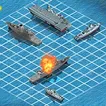











































































































































































































Simulation Games: Engaging in Virtual Realities and Strategic Management
Embark on a journey through the dynamic world of simulation games, a genre that offers players a chance to immerse themselves in diverse virtual experiences and strategic gameplay. This introduction will touch on the allure of simulation games, their technological progression, and their capacity to simulate complex real-world scenarios, providing both entertainment and educational value.
Simulation games have long captivated audiences with their ability to mirror aspects of reality, allowing players to step into alternate worlds and experiences. From the humble beginnings of text-based adventures to the intricate 3D environments of today, the genre has evolved significantly. Advances in computing power and graphics technology have enabled developers to create more realistic and detailed simulations, blurring the lines between game and reality.
These games often require strategic thinking and planning, as players are tasked with managing resources, making decisions with long-term consequences, and solving problems that mimic real-life challenges. The appeal of simulation games lies in their versatility and depth, catering to those who enjoy casual play as well as those who seek a more complex and involved experience.
Moreover, simulation games serve a dual purpose. They are not only a source of entertainment but also a means of education. By simulating real-world scenarios, they provide a safe space for players to learn and practice skills that can be transferable to real-life situations, such as business management, urban planning, and environmental conservation.
As technology continues to advance, the future of simulation games looks bright. With the incorporation of virtual reality and other immersive technologies, the potential for even more engaging and realistic simulations is on the horizon. This genre continues to push the boundaries of what is possible in gaming, offering players a unique opportunity to engage with and manage virtual realities.
Understanding Simulation Games
Simulation games are a diverse and expansive genre that encompass a range of virtual experiences, from replicating the intricacies of everyday life to managing complex systems and environments. At their core, simulation games are designed to emulate aspects of the real world or fantasy settings, providing a sandbox in which players can experiment with different strategies and outcomes.
The evolution of simulation games can be traced back to simple text-based interfaces where the imagination filled in the gaps left by technology. As technology advanced, so did the complexity and realism of these games. The introduction of two-dimensional graphics gave way to three-dimensional worlds, offering players a more immersive experience. Today, simulation games boast highly detailed environments and sophisticated AI, allowing for dynamic and responsive gameplay that continues to push the boundaries of realism.
The technological advancements in hardware and software have been pivotal in the development of the genre. Increased processing power and improved graphics capabilities have enabled game developers to create more nuanced and lifelike simulations. These advancements have not only enhanced the visual fidelity but also the depth of the systems within the games, allowing for more intricate gameplay mechanics and a greater level of strategic involvement.
The wide appeal of simulation games stems from their ability to cater to a variety of interests. Whether it’s the allure of stepping into a different career, the challenge of managing a city, or the satisfaction of building and nurturing a community, simulation games offer something for everyone. They provide a platform for players to test their decision-making skills and creativity, often requiring careful planning and resource management to succeed.
In essence, simulation games are a form of interactive entertainment that offer a window into different worlds and scenarios. They are a testament to the power of technology to create engaging, strategic, and educational experiences that resonate with a broad audience.
Simulator Games: Virtual Careers and Resource Management
Simulation games excel in offering players the opportunity to assume various virtual careers, from city planners and farmers to corporate CEOs. These roles require players to engage in complex resource management, balancing budgets, materials, and human resources to achieve their objectives. The strategic depth of these games often mirrors the real-world intricacies of running a business or managing a community, making them a valuable tool for learning and applying economic principles and entrepreneurial strategies.
The educational potential of simulation games is significant. By providing a risk-free environment, they allow players to experiment with business models, urban development plans, and even ecological conservation efforts. The feedback loop within these games is immediate and informative, offering lessons on cause and effect that are directly applicable to real-life scenarios. Players can see the consequences of their decisions play out in real-time, gaining insights into the complexities of managing resources effectively.
Moreover, the psychological benefits of engaging in these virtual careers are noteworthy. Players can explore different lifestyles and professions, which can be particularly empowering, offering a sense of achievement and the satisfaction of seeing their strategies succeed. This can lead to increased confidence in their decision-making skills and a better understanding of the multifaceted nature of managing resources, whether they be financial, natural, or human.
In sum, simulation games provide a rich tapestry of experiences that combine entertainment with practical learning. They challenge players to think critically and strategically, offering a simulated taste of various careers and the resource management they entail. As players navigate these virtual worlds, they not only enjoy themselves but also develop skills that can have a meaningful impact on their real-world perspectives and competencies.
Online Simulation Games: Immersive Experiences and Societal Reflection
Online simulation games take the immersion of the genre to new heights, offering players a chance to interact with others in shared virtual spaces. These games often simulate societal roles and have the unique ability to reflect and explore real-world issues within a safe and controlled environment. Players can experience different perspectives, experiment with social dynamics, and engage with economic and environmental challenges that mirror those in the real world.
The social aspect of online simulation games adds a layer of complexity and realism. Players must navigate not only the game’s mechanics but also the interpersonal relationships that form within these virtual societies. This interaction can lead to a deeper understanding of social structures and the impact of individual and collective actions.
These games also serve as a form of escapism, providing a break from the pressures of daily life. However, they are more than just a means to unwind; they encourage critical thinking and problem-solving. As players collaborate or compete to achieve goals, they can develop skills in communication, leadership, and teamwork.
Looking ahead, the integration of advanced technologies like virtual reality promises to make online simulation games even more engaging. The potential for players to feel truly present in these virtual worlds could enhance the educational and reflective aspects of the genre, making the experiences more impactful.
In essence, online simulation games are a powerful blend of entertainment, education, and social commentary. They offer players a unique opportunity to immerse themselves in virtual worlds that are not only captivating but also serve as a mirror to society, encouraging reflection on the challenges and possibilities of our shared reality.